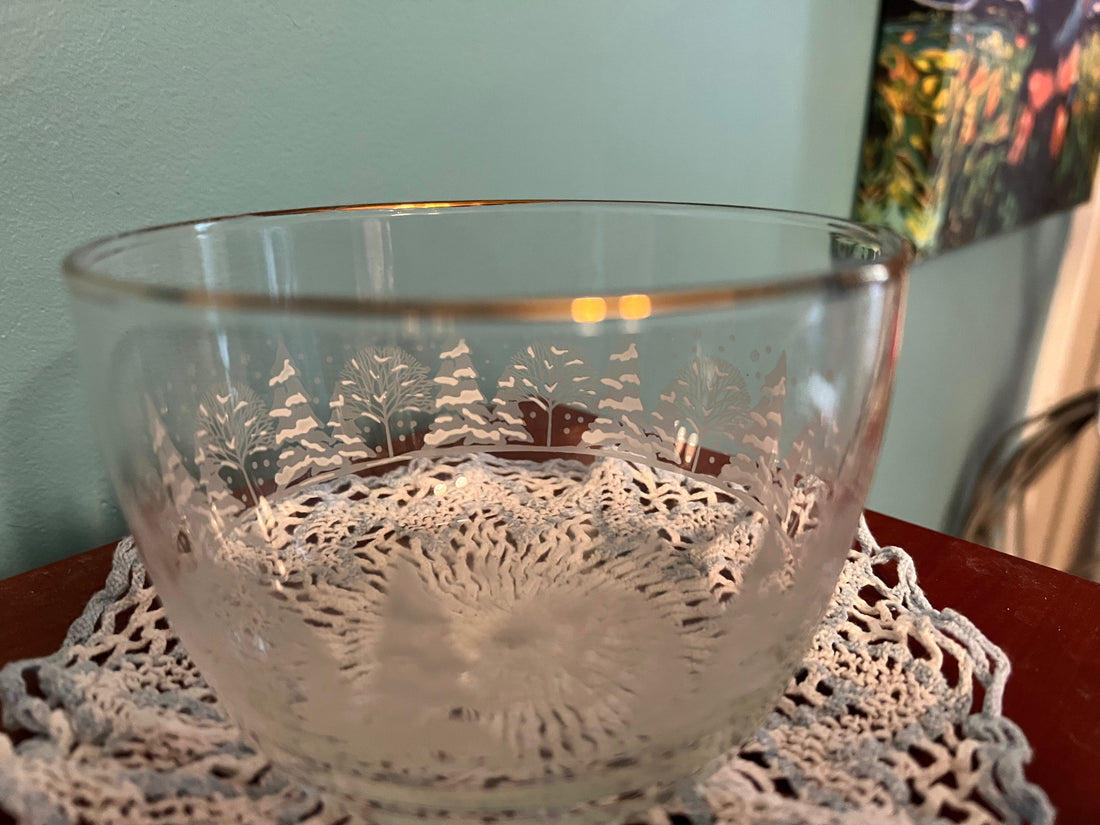Caring for Your Vintage Glassware: Cleaning and Storage Tips

Vintage glassware has a certain charm that’s hard to resist... The way sunlight dances through a cut crystal, or how a gently worn rim tells a story of years gone by. And, no matter if you’re an experienced collector or just starting to build your collection, knowing how to care for your pieces is always important when it comes to keeping your pieces safe for years to come.
Cleaning Vintage Glass: Gentle Techniques That Work
Cleaning vintage glass requires a gentle touch. Using harsh chemicals or abrasive sponges can cause more damage to your piece over time, meaning that scratches or damage to delicate finishes is more likely to occur.
Instead, we recommend:
- Using a mild, phosphate-free soap with warm water and a soft cloth or sponge. Always avoid extremely hot water as it is more likely to cause stress on your vintage glassware and lead to cracks.
- For glassware with more intricate glassware, you might turn to a soft-bristled brush that can reach into grooves without causing damage.
- If your pieces have painted or gilded details, skip soaking. to avoid fading over time.
- After washing, allow your glassware to air dry on a soft towel or pat it gently dry to keep finishes looking their best.
Storing Collectible Glassware: Tips to Preserve Their Beauty
How you store your pieces is just as important as cleaning when it comes to preventing damage. To avoid scratches, place a felt or cloth between stacked plates and bowls, and remember that cups, goblets, and stemware are best when stored upright and never stacked... This can help avoid chips or cracks.
Different colors of vintage glass bring their own personality to the table, but it's always important to keep them away from direct sunlight. Doing so can help you avoid fading colors.
For collectors, display cabinets with glass doors provide the perfect balance of protection and visibility, letting your pieces shine while keeping dust and accidents at bay.
Additional Tips for Long-Lasting Care
- Avoid sudden temperature changes like pouring hot liquids into chilled glass. This can shock the inadvertently cause stress fractures.
- Handle your vintage glassware with care, supporting the base and rim to keep things safe.
- If you want to reduce wear on delicate items, remember that spot cleaning is always enough between full washes.
Preserve Your Antique and Vintage Dishes With Confidence
Caring for vintage glass does not have to be overwhelmingly complicated. With a little though
Frequently Asked Questions About Caring for Vintage Glassware
1. How do I safely clean vintage glass?
Use a mild, phosphate-free soap with warm water and a soft cloth or sponge. Avoid harsh chemicals and abrasive scrubbers. Using these types of mterials can scratch or damage the designs or delicate finishes. For intricate patterns, a soft-bristled brush works well. Always dry gently.
2. Can I put antique glassware in the dishwasher?
It’s best to avoid dishwashers for vintage glass. High heat, strong detergents, and water pressure are more than likely going to damage finishes, etchings, or painted details. Hand washing is the safest method to protect your collectable glass.
3. What’s the best way to store collectible glassware?
Stack plates and bowls with felt or cloth between them to prevent scratches. Store cups, goblets, and stemware upright. Avoid stacking these pieces and keep in a cabinet away from direct sunlight. Consistent temperature and low humidity can also help preserve your glassware over time.
4. How can I preserve antique dishes with painted or gilded details?
Avoid soaking in water. Gently wash by hand and dry immediately.
5. Are there special tools or accessories for caring for vintage glass?
Yes! Soft-bristled brushes, microfiber cloths, and padded storage solutions are ideal. Investing in accessories designed for collectible glassware helps you clean safely and store your pieces without risking chips or scratches.
6. How often should I clean vintage glassware?
Spot cleaning after use is often enough for lightly used pieces. Frequent full washes can stress older glass, so reserve thorough cleaning for when it’s truly needed.



